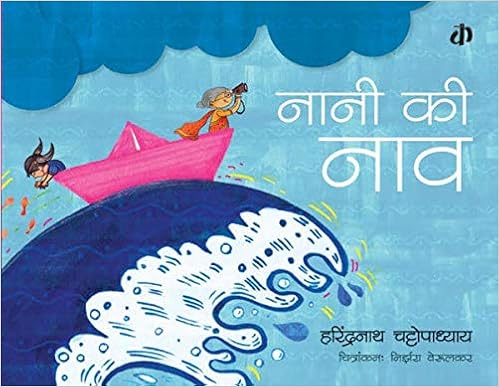If the tunes of "Rail Gaadi Rail Gaadi Chuk Chuk" from “Aashirwaad” had you jumping for joy, then Harindranath Chattopadhyay's playful poetry is one for the books. Yes, indeed, that the song often deemed as India's first rap by Ashok Kumar was written by Chattopadhyay! Chattopadhyay took you on a journey through various cities, giving you a chance to be many things — from an engine to a coal-car, chasing away at nothing in particular, but simply diffusing excitement everywhere you went. He's no stranger to nature's secrets; paper kites, stormy clouds, and unruly winds are just some of the many things he writes about — and he's here again, to take you on yet another journey in your grandmother's boat!
Born in 1898, the author was not just a writer by profession but also dabbled in various other areas. Many know him from his cameo roles in “Bawarchi” (1972) and “Seemabadha” (1971). He wrote and composed the music for “Aashirwaad,” and often recited the famous "Rail Gaadi" from the movie on All India Radio. This went on to become a larger mission for him, as he now has a long list of poetic credits such as “The Feast of Youth” (1918), “The Magic Tree” (1922), “Blood of Stones” (1944) and “Spring in Winter” (1955). His play “Tukaram” has occupied the stages of London, while his Hindi poetry has been appreciated by the likes of Rabindranath Tagore and made him a recipient of the Padma Bhushan in 1973.
Coming from a distinguished family (did you know he was Sarojini Naidhu’s brother?), Chattopadhyay had a lot of opportunities. But his work is truly appreciable because of the easy, happy-go-lucky, sometimes nonsensical-style he uses in writing about the ordinary. A long, repetitive list of daily household items seems to form the majority of a poem like “Nani Ki Naav,” but it is really an imaginative glimpse into the everyday. What items does Nani carry as she gets into her boat for a long journey? How and why does the crocodile manage to get hold of her belongings? Is Chattopadhyay looking at the incident from the viewpoint of her age? We'll never know, but it's up to us to find our own answers in this colourful and evocative poem!
| KATHA, A3, Sarvodaya Enclave, Sri Aurobindo Marg, New Delhi – 110017 |
The aforementioned book has been published by Katha in 2019 for young readers, brilliantly illustrated by Nirzara Verulkar. Pre-order your copy on Amazon (https://www.amazon.in/dp/B07XRLR7RM?ref=myi_title_dp) or books.katha.org and embark on this new journey!

